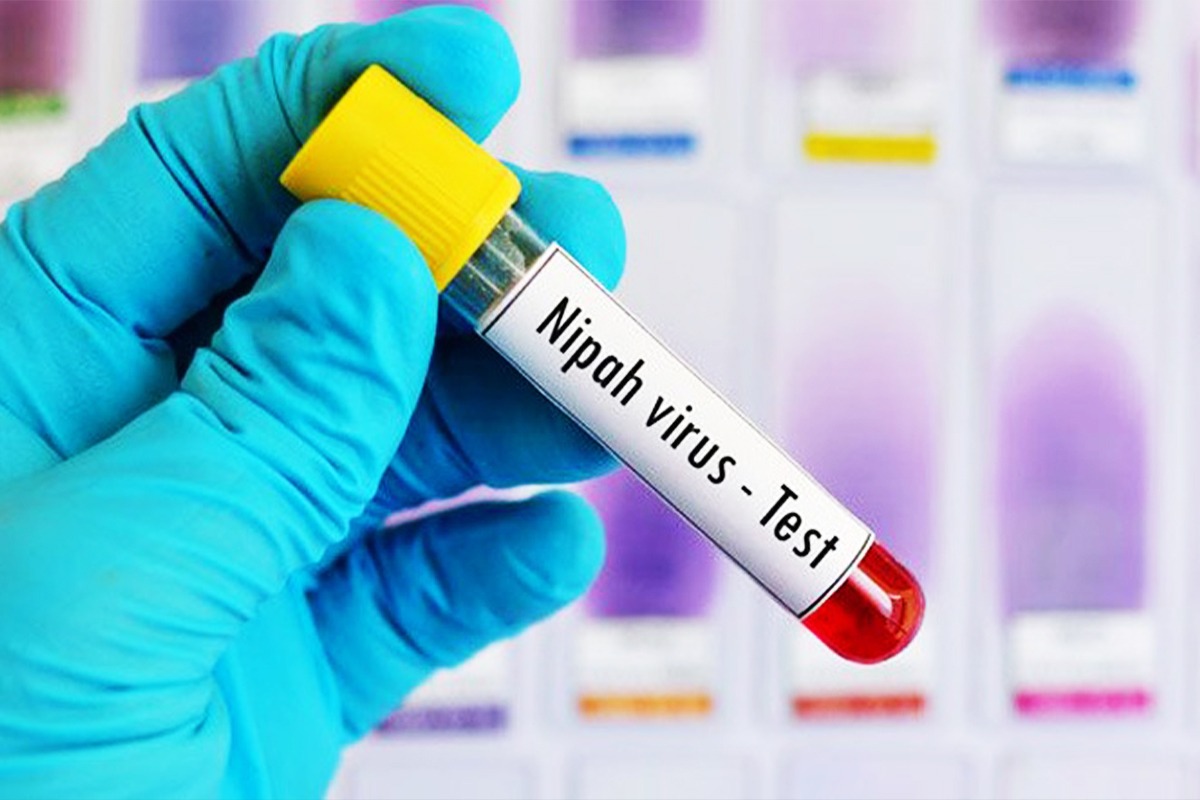NEW DELHI: Two recent fatalities in Kerala have raised concerns about the Nipah virus (NiV), sending the state government in action. 125 individuals who came in contact with the infected persons have been isolated.
Experts say the Nipah Virus does not spread as quickly as the Covid-19 but is more deadly than coronavirus.
What is Nipah Virus?
Nipah Virus (NiV) is a zoonotic virus, meaning it can jump from animals to humans. It can also spread through contaminated food or direct human-to-human transmission. In infected individuals, it can lead to a spectrum of illnesses, ranging from asymptomatic infection to severe respiratory illness and fatal encephalitis.
NiV can also cause substantial economic losses for farmers due to severe disease in animals, particularly pigs. Although NiV outbreaks are relatively rare, its ability to infect a wide range of species, including humans, underscores its significance as a public health concern.
READ MORE: Nipah In India: Experts divided if mRNA or covid vaccine can work
Symptoms of Nipah Virus – Initial symptoms commonly include:
Fever
Headaches
Muscle pain (myalgia)
Vomiting
Sore throat
Dizziness
Drowsiness
Encephalitis (swelling of the brain) can occur, progressing to coma and death.
READ MORE: Over 100 people to be quarantined for Nipah, Kerala under threat
How does this virus spread?
Infected fruit bats can spread the disease to people or animals, such as pigs. Those who come in close contact with an infected animal or its body fluids (such as saliva or urine) can be infected. This initial spread from an animal to a human is called a spillover event.
How to prevent the spread of NiV?
In the absence of a vaccine, the only way to reduce or prevent infection in people is by raising awareness of the risk factors and educating people about the measures they can take to reduce exposure to the Nipah Virus. Here are few measures which can be taken to prevent the spread of this virus:
Wash your hands regularly with soap and water.
Stay away from animals like pigs or bats, especially in areas where the virus is present.
Food Safety: Avoid consuming products that could be contaminated by bats, such as raw date palm sap, raw fruit, or fruit that has fallen to the ground.
Avoid Contact with Infected Individuals: Stay away from individuals known to have the NiV virus and avoid contact with their blood or body fluids.
EXCLUSIVE: Over 100 people have been advised to quarantine themselves after being suspected of coming into contact with the one of the four people who have been confirmed of contracting the #NipahVirus in #Kerala
Reports @Viveknarayan805
FULL REPORT: https://t.co/5ifx15YenP
— The New Indian (@TheNewIndian_in) September 13, 2023










